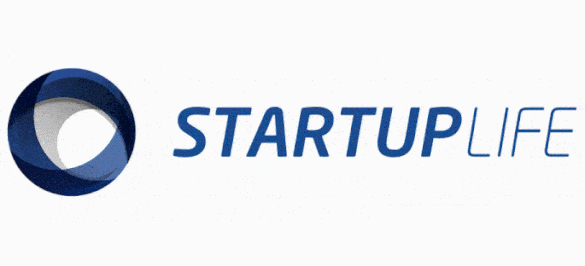This article aims to explore in detail what a Payment Service Provider (PSP) is, its various types, the limitations on offering loans and financing, the requirements for requesting authorization from the Central Bank of Brazil, and the compliance policies and regulatory routines that must be followed.
Content:
- What is a Payment Service Provider (PSP)?
- Types of Payment Service Providers (PSPs)
- Can a Payment Service Provider (PSP) offer loans and financing?
- Authorization Request for a Payment Service Provider (PSP) with the Central Bank
- Transaction Limits for Requesting Authorization
- Compliance for PSPs
What is a Payment Service Provider (PSP)?
A Payment Service Provider (PSP), as defined by Law No. 12,865/12, is a legal entity that offers payment services to end-users within the scope of the Brazilian Payment System (SPB) by adhering to payment schemes. Its main objective is to enable end-users to carry out payment transactions through its operational structure, such as transactions involving paying and/or receiving, issuing payment instruments, and accrediting merchants to accept payment instruments issued under a payment scheme, among others.
Types of Payment Service Providers (PSPs)
The activities performed by this type of institution were regulated by the Central Bank of Brazil (Bacen) through BCB Resolution No. 80/21, which defined, based on the activities carried out, the types of PSPs that can be operated, either cumulatively or not. They are:
- E-money Issuer: Manages a prepaid end-user payment account, allowing payment transactions that involve paying and transferring, based on a prior deposit of funds (e.g., prepaid cards).
- Post-paid Payment Instrument Issuer: Manages a post-paid end-user payment account, allowing payment transactions based on this account (e.g., credit cards).
- Acquirer: Enables payees to accept a payment instrument issued by a PSP or a financial institution participating in the same payment scheme, taking part in the settlement process of payment transactions as a creditor to the issuer (e.g., Cielo, GetNet, among others).
- Payment Initiation Service Provider (PISP): Allows the initiation of a payment transaction without managing the payment account or holding the transacted funds (e.g., WhatsApp Pay).
Can a Payment Service Provider (PSP) offer loans and financing?
A Payment Service Provider (PSP) cannot grant loans or financing to its clients. However, one of its main advantages is that, with much less bureaucracy, it can offer its users payment services that are usually offered by traditional banks, such as: TED, DOC, boleto (bank slip), Pix, and credit or debit cards.
Authorization Request for a Payment Service Provider (PSP) with the Central Bank of Brazil
We emphasize that for a company to submit an authorization request to Bacen to operate as a Payment Service Provider (PSP), it is crucial that it is very well-advised on all fronts – whether in compliance, legal, or accounting – due to the existing details that must be addressed to avoid setbacks during the process.
Resolutions No. 80 and No. 81 from the Central Bank of Brazil provide all the necessary details for making the authorization request to operate as a PSP. In this case, we mention some key points:
- Identification of the controllers and qualified equity holders of the company, with their respective corporate interests: list name/corporate name, CPF/CNPJ, and respective shareholdings.
- The institution’s fully paid-in share capital.
- Description of all services provided or to be provided in each modality, including in payment schemes not part of the Brazilian Payment System, especially those provided within the scope of limited-purpose payment schemes, as provided in the current regulation.
- Payment schemes of which it is or will be a part.
- Volume of payment transactions for each type of payment service provided, according to the calculation method.
- Identification of foreign authorities that supervise the controllers, when applicable.
- Corporate act that decided on the election or appointment of administrators: inform the date and type of act (e.g., ordinary or extraordinary general meeting, board of directors’ meeting).
- Elected or appointed administrators: inform the name, CPF, body, position, and term of office of all elected or appointed administrators.
All this information must be indicated by submitting an Authorization Request to the monetary authority, along with declarations related to the aspects indicated in the course of such a Request, which are:
- Declaration of compliance with financial capacity.
- Declaration of the lawful origin of funds.
- Declaration of business model sustainability.
- Declaration of unblemished reputation of controllers and authorization for access to information.
- Declaration of unblemished reputation of administrators and authorization for access to information.
- Declaration of conformity of administrators.
- Group organizational chart.
- Authorization for Bacen’s use of information.
Transaction Limits for Requesting Authorization in Brazil
For those Payment Service Providers (PSPs) that operate as E-money Issuers (the most common type), Resolution No. 80 of the Central Bank of Brazil, which was amended in 2022 by Resolution No. 257/2022, established criteria for requesting operating authorization:
- If, between January 1, 2022, and December 31, 2024, it reaches financial movements exceeding at least one of the following values: a) BRL 300,000,000.00 in payment transactions; or b) BRL 30,000,000.00 in funds held in a prepaid payment account.
- If, between January 1, 2025, and December 31, 2025, it reaches financial movements exceeding at least one of the following values: a) BRL 250,000,000.00 in payment transactions; or b) BRL 25,000,000.00 in funds held in a prepaid payment account.
- If, between January 1, 2026, and December 31, 2026, it reaches financial movements exceeding at least one of the following values: a) BRL 200,000,000.00 in payment transactions; or b) BRL 20,000,000.00 in funds held in a prepaid payment account.
- If, between January 1, 2027, and December 31, 2027, it reaches financial movements exceeding at least one of the following values: a) BRL 150,000,000.00 in payment transactions; or b) BRL 15,000,000.00 in funds held in a prepaid payment account.
- If, between January 1, 2028, and December 31, 2028, it reaches financial movements exceeding at least one of the following values: a) BRL 100,000,000.00 in payment transactions; or b) BRL 10,000,000.00 in funds held in a prepaid payment account.
- By March 31, 2029, if it does not reach the financial movements indicated in the criteria above.
Previously, all fintechs operating as E-money Issuer PSPs were required to request authorization from Bacen to operate from January 1, 2023.
With the modification of the deadlines by the publication of Resolution No. 257/2022, extending the deadlines for those that have already exceeded the limits provided above, and until March 31, 2029, for those that have not reached the indicated financial movements, the fintechs covered by the transition calendar will have more time to prepare and structure themselves adequately.
Therefore, it is noted that there is a series of issues to be handled by the fintech when carrying out its business activities, making it essential for the entrepreneur to be equipped with qualified professionals to help prepare the fintech for the authorization request to operate as a Payment Service Provider (PSP) with the Central Bank.
Compliance for PSPs
The implementation of a compliance program aims for an institution’s observance of the norms and rules provided for in legislation or administrative norms, through the implementation of internal and external controls and policies and procedures adopted by the institution, which must be constantly updated and disclosed internally, to ensure compliance.
For this, it is necessary to analyze the institution’s operating segment to verify the applicable rules and obtain procedures that allow for the continuous analysis of legislation and regulations issued by regulatory bodies, which deal with topics applicable to the company’s reality, so that it can be defined how the compliance program will be structured.
Compliance can have several fronts in an institution based on the reality of its business model, and can be geared towards conformity with data protection, labor standards, anti-corruption laws, among others.
For further information regarding our services, get in touch:











